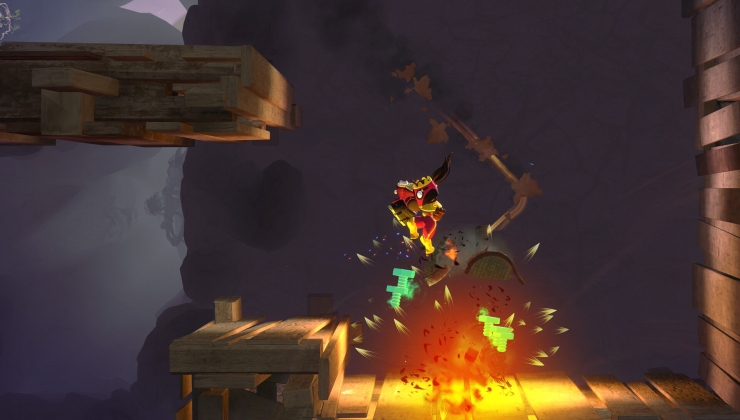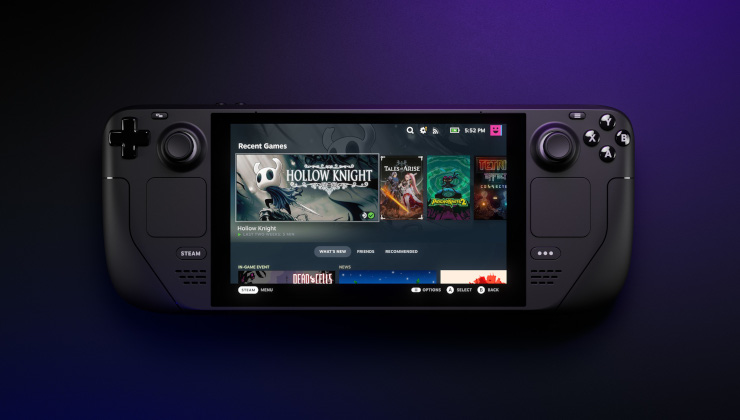Virtual Reality is still a niche and doing it on Linux is a niche within a niche, that said when it works it's brilliant but there's a few problematic issues that have arisen recently.
After having played a great many hours, and picking up a fan to prevent myself overheating, I feel it's safe to say I'm now a huge fan of VR. Sadly though, there are times where updates roll out with SteamVR that cause problems on Linux and it doesn't really seem much of a priority for Valve to fix (compared with updating Proton).
Two problems appeared, and both have seemingly the same culprit.
The oldest problem is how the SteamVR Overlay (and some other areas) will have this weird jittering and delay that looks pretty bad and can easily make you feel a bit sick. A bug report has been open on it since at least October 2020, which affected AMD users. The problem was found to be asynchronous reprojection, which is supposed to help responsiveness in VR when the GPU can't really keep up with everything. The problem was amplified recently when NVIDIA released the 470.42.01 driver in June 2021 which added async reprojection support on Linux. So now both camps have the same problem.
On top of that another more recent issue that I reported in July 2021 sees VR games fail after a few minutes with a "-203" error code. Sometimes you can play for 5 minutes, sometimes 10 and sometimes less than a minute.
What's the fix for both issues? Turn off async reprojection, at least until Valve find out what's causing the problems across both AMD and NVIDIA GPUs. How to to turn it off? Find this file ~/.steam/steam/config/steamvr.vrsettings and make sure this is in there:
{
"steamvr" : {
"enableLinuxVulkanAsync" : false
}
}
Hopefully this will help more of you enjoy VR on Linux.
The crashes are highly annoying. They primarily happen with games that have low or inconsistent framerates or from other sources of big stutters. Last week I played Groove Gunner for two hours without issues, but BL2VR crashed in minutes. Well, not actually BL2 that crashed, the game keeps running it's just he HMD display and tracking that stops working while the game keeps running.
As for async reprojection as a technology I have mixed feelings about it. On the one hand I can't deny the latency improvement, which is extremely pleasant. But it is not free of issues. Since the reprojection is strictly based on rotation, head movement (also the implicit movement of your eyes when you rotate your head) are not included. This results in visible perspective and parallax issues which you perceive as a slight distortion.
Another thing I noticed is that the rendering framerate sometimes takes a big hit. Async reprojection is supposed to prevent a drop in rendering framerate, but it doesn't seem to maintain that. Groove Gunner is again a nice example since I can pretty much maintain close to 120 fps. The times where it does dip below it's only a small amount and I never really noticed the dropped frames before async reprojection. But now I sometimes see the framerate of the moving objects (and hands) drop down to at most 60 fps, which is not particularly pleasant regardless of the smooth head movement.
Motion smoothing is supposed to correct for some of the above problems, but from what I've read most people on Windows don't find it worth it because it introduces artefacts. Which also makes me wonder if Windows users have the same issues with async reprojection or if "their" implementation is actually better.
It seems I'll still have to wait for another fix :/
Last edited by SketchStick on 18 Aug 2021 at 2:12 pm UTC
https://github.com/fholger/openvr_fsr
Last edited by bubexel on 18 Aug 2021 at 5:09 pm UTC
I'm going to be getting a decagear 1.0 end of year and they won't have software for Linux until a while so I'll be forced to boot back into windows for vr.








 How to set, change and reset your SteamOS / Steam Deck desktop sudo password
How to set, change and reset your SteamOS / Steam Deck desktop sudo password How to set up Decky Loader on Steam Deck / SteamOS for easy plugins
How to set up Decky Loader on Steam Deck / SteamOS for easy plugins
See more from me